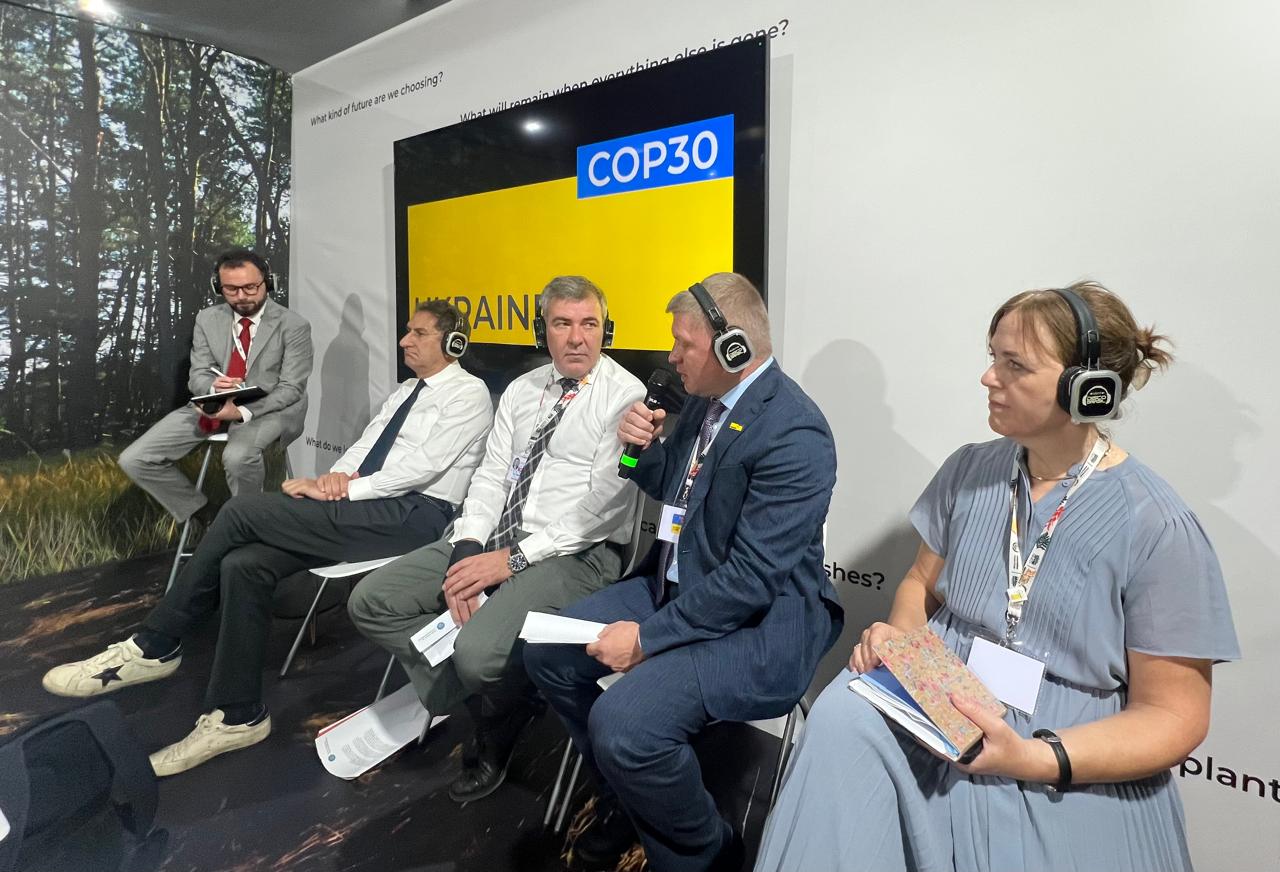At the UN Climate Change Conference COP30 in Brazil, the Ukrainian Pavilion hosted a high-level session, “Energising Ukraine’s Future: Security and Green Recovery”, organised by the Ministry of Economy, Environment and Agriculture of Ukraine together with the European Commission.
During the session, Ukrainian officials, representatives of the G7+ Coordination Group for Ukraine’s energy support, and the European Commission reaffirmed their shared commitment to strengthening Ukraine’s energy security and accelerating its green transition. Participants also discussed the unprecedented challenges facing Ukraine’s energy system as a result of intensified Russian attacks on critical infrastructure.
“Energy security and climate resilience are inseparable. The war has only exacerbated Ukraine’s climate challenges, and providing the country with the necessary tools and support is essential for strengthening recovery and achieving long-term sustainability. Ukraine is forced to repair and rebuild every day, yet continues to plan its future ambitiously – balancing long-term transition with immediate energy security needs. This balance is possible only with strong international cooperation,” noted Pavlo Kartashov, Deputy Minister of Economy, Environment and Agriculture of Ukraine, outlining Ukraine’s long-term climate vision.

Despite wartime pressures, Ukraine continues to demonstrate significant progress in the energy and climate sectors. Rapid infrastructure repair, expansion of distributed generation, and integration of new wind, solar and storage capacities have strengthened system resilience ahead of winter. Private investment is also returning – including €450 million to expand the Tyligulska wind power plant to around 500 MW by 2026.
The European Union, together with the EBRD and other partners, continues to support Ukraine through new de-risking instruments designed to unlock large-scale green investment and mitigate project risks in renewable energy.
“I am deeply impressed by how Ukraine, even in the midst of full-scale war, continues to take steps that also advance the fight against climate change. When you decentralise your energy system and increase the share of renewables, you are strengthening resilience – and investing in Ukraine’s future. After the war, when Ukraine becomes an EU member, it will be part of our climate solutions. I highly appreciate the work Ukraine is doing,” said European Commissioner for Energy Dan Jørgensen, expressing strong support for Ukraine’s efforts to enhance energy resilience and climate action.

Ukrainian officials emphasised that energy security and green recovery are inseparable: strengthening electricity grids, developing rooftop solar and community wind projects, deploying energy-storage systems, and expanding modern renewables are critical not only for meeting climate goals but also for ensuring survival, stability and energy sovereignty during wartime. These measures are what will keep the lights on in Ukrainian homes in the winters ahead.


